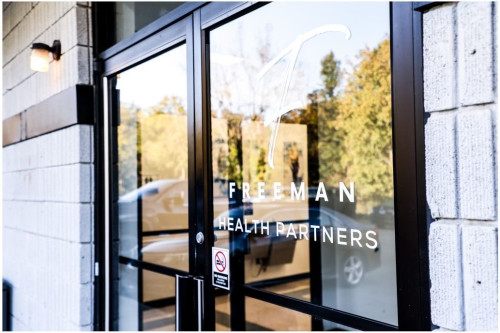

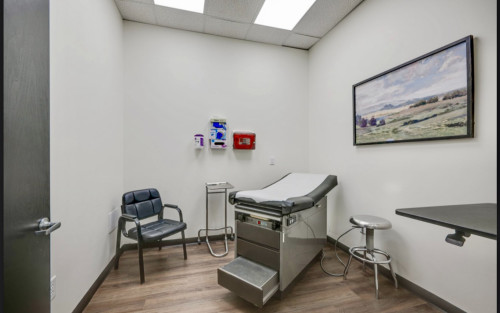



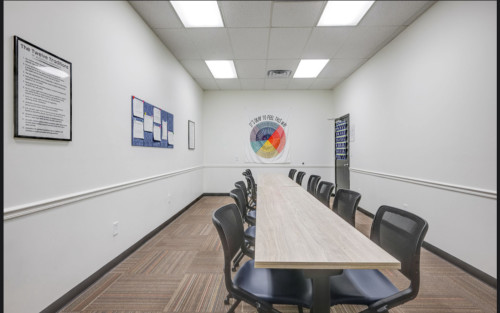
Freeman Health Partners
Verified Center
This provider's information has been quality-checked by Recovery.com's Research Team for accuracy and completeness, including center verification through appropriate third-party organizations.
Treatment Focus
This center treats mental health conditions and co-occurring substance use. You receive collaborative, individualized treatment that addresses both issues for whole-person healing.
Primary Level of Care
Outpatient treatment offers flexible therapeutic and medical care without the need to stay overnight in a hospital or inpatient facility. Some centers offer intensive outpatient program (IOP), which falls between inpatient care and traditional outpatient service.
Treatment Focus
This center treats mental health conditions and co-occurring substance use. You receive collaborative, individualized treatment that addresses both issues for whole-person healing.
Primary Level of Care
Outpatient treatment offers flexible therapeutic and medical care without the need to stay overnight in a hospital or inpatient facility. Some centers offer intensive outpatient program (IOP), which falls between inpatient care and traditional outpatient service.
Provider's Policy
Commercial health insurance typically covers many aspects of the primary care, counseling and therapy processes, including assessments, therapy sessions, and medication management.
Freeman Health Partners
Freeman Health Partners
About Freeman Health Partners
Located near Nashville, Tennessee, Freeman Health Partners offers a wide range of mental health treatment services in an outpatient setting. The center uses evidence-based practices and personalized care with special offerings like family therapy and transcranial magnetic stimulation (TMS).
Evidence-Based Outpatient Detox
Freeman Health Partners prioritizes clients’ health and safety throughout the recovery process in their outpatient detox. In this program, clients can safely withdraw from substances, begin medication-assisted treatment if needed, and develop healthy coping skills through evidence-based and holistic therapies. Treatment begins with an initial assessment to gather comprehensive insights into a client’s unique situation. From cognitive behavioral therapy (CBT) to art therapy and peer support groups, the center provides effective methods and cultivates a sense of community. Clients participate in individual, group, and family therapy. Personalized care plans accommodate commitments, and evening and weekend sessions are available for convenience. After completing the outpatient program, caring staff strengthen a client’s recovery by arranging continued therapy, relapse prevention training, and community resources.
Mental Health and Primary Care
Freeman Health Partners specializes in mental health assessments, diagnoses, psychotherapy, medication management, and behavioral health tools, enveloping a broad range of services to meet clients where they are on their mental health journey. In psychotherapy sessions, clients can improve communication, learn conflict resolution, increase self-esteem, develop healthy coping strategies, and effectively navigate mental health. Under a cognitive behavioral model, clinicians use acceptance and commitment therapy (ACT), rational emotive behavioral therapy (REBT), and mindfulness-based stress reduction.
Additionally, they can provide primary care services with an integrated approach to health and wellness, combining medical services, therapeutic modalities, and holistic treatment. This encompasses a wide range of services, including routine check-ups, preventive screenings, vaccinations, management of chronic conditions (such as diabetes or hypertension), acute care for common illnesses and injuries, counseling on lifestyle modifications, and referrals to specialists when needed.
Unique Services
Freeman Health Partners delivers an integrative suite of health services tailored to the diverse needs of families throughout Tennessee. Merging medical and mental healthcare, they aspire to provide a seamless continuum of care that supports every family member, from the youngest to the oldest. Beyond general health services, Freeman Health Partners offers a robust drug testing program to support medical clinics, enhance employment background checks, and bolster sober living facilities with various customized testing options.
In the realm of mental health, they are pioneering the use of Transcranial Magnetic Stimulation (TMS). This treatment harnesses magnetic fields to rejuvenate neural activity and alleviate symptoms of depression and other mental health disorders. This innovative therapy and other therapeutic strategies pave the way for a comprehensive and holistic recovery process, setting a new standard for patient care and wellness at Freeman Health Partners.
Highlights from the Center
Highlights
These highlights are provided by and paid for by the center.
1-on-1 Counseling
Customized Treatment Plans
Perfect for Professionals
Trauma Treatment
Center Overview
Treatment Focus
This center treats mental health conditions and co-occurring substance use. You receive collaborative, individualized treatment that addresses both issues for whole-person healing.

Insurance Accepted
Cash Pay Rates
Estimated Cash Pay Rate
Center pricing can vary based on program and length of stay. Contact the center for more information. Recovery.com strives for price transparency so you can make an informed decision.
Meet Your Care Team

Amber Lee
Family Nurse Practitioner

Jennifer Street
Office Manager

June Brown
Patient Service Representative

Kat Hinson
Licensed Practical Nurse

Marsha Smith
Family Nurse Practitioner

Morgan Pickard
Medical Assistant

Shawn Stockman
Patient Service Representative
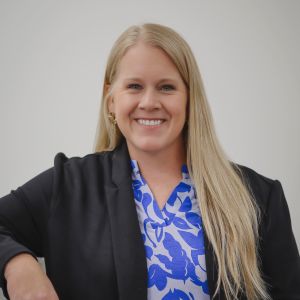
Stacey Groves
Physician Assistant
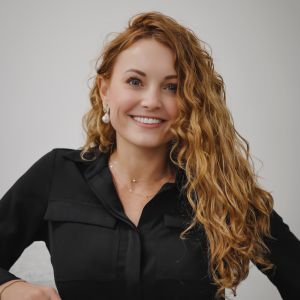
Stephanie Kress
Psychiatric-Mental Health Nurse Practitioner

Stephanie Quinonez
Patient Service Representative

Steve Lepley
EMDR Therapist

Tabatha Baker
CEO

Teresa Maraman
Medical Assistant




Levels of Care






Your Care Options
Specializations
Schizophrenia
Schizophrenia is a serious mental health condition that causes hallucinations, delusions, and disordered thinking.
Personality Disorders
Personality disorders destabilize the way a person thinks, feels, and behaves. If untreated, they can undermine relationships and lead to severe distress.
Anxiety
Anxiety is a common mental health condition that can include excessive worry, panic attacks, physical tension, and increased blood pressure.
Bipolar
This mental health condition is characterized by extreme mood swings between depression, mania, and remission.
Depression
Symptoms of depression may include fatigue, a sense of numbness, and loss of interest in activities. This condition can range from mild to severe.
Medication-Assisted Treatment
Combined with behavioral therapy, prescribed medications can enhance treatment by relieving withdrawal symptoms and focus patients on their recovery.
Outpatient
During outpatient rehab, patients attend a structured treatment program while continuing to live at home.
Trauma
Some traumatic events are so disturbing that they cause long-term mental health problems. Those ongoing issues can also be referred to as "trauma."
Who We Treat
Older Adults
Addiction and mental health treatment caters to adults 55+ and the age-specific challenges that can come with recovery, wellness, and overall happiness.
Adolescents
Teens receive the treatment they need for mental health disorders and addiction, with the added support of educational and vocational services.
Children
Treatment for children incorporates the psychiatric care they need and education, often led by on-site teachers to keep children on track with school.
Executives
Executive treatment programs typically directly support the needs of people who manage businesses and may provide flexible schedules and office space to allow work during treatment.
Young Adults
Emerging adults ages 18-25 receive treatment catered to the unique challenges of early adulthood, like college, risky behaviors, and vocational struggles.
LGBTQ+
Addiction and mental illnesses in the LGBTQ+ community must be treated with an affirming, safe, and relevant approach, which many centers provide.
Approaches
Individual Treatment
Individual care meets the needs of each patient, using personalized treatment to provide them the most relevant care and greatest chance of success.
Medical
Medical addiction treatment uses approved medications to manage withdrawals and cravings, and to treat contributing mental health conditions.
Personalized Treatment
The specific needs, histories, and conditions of individual patients receive personalized, highly relevant care throughout their recovery journey.
Wellness
Wellness philosophies focus on the physical, mental, and spiritual wellness of each patient, helping them restore purpose with natural remedies.
Therapies
1-on-1 Counseling
Patient and therapist meet 1-on-1 to work through difficult emotions and behavioral challenges in a personal, private setting.
Transcranial Magnetic Stimulation
Localized magnetic pulses stimulate areas of the brain to increase brain activity and reduce abnormal functions.
Attachment-Based Family Therapy
ABFT is a trauma-focused therapy that teaches you to form healthy relationships by rebuilding trust and healing attachment issues formed in childhood.
Weight Loss
Programming designed to promote sustainable health and wellness through personalized nutrition and fitness plans.
Family Therapy
Family therapy addresses group dynamics within a family system, with a focus on improving communication and interrupting unhealthy relationship patterns.
Conditions We Treat
Pornography Addiction
A person with a porn addiction is emotionally dependent on pornography to the point that it interferes with their daily life and relationships.
Schizophrenia
Schizophrenia is a serious mental health condition that causes hallucinations, delusions, and disordered thinking.
Grief and Loss
Grief is a natural reaction to loss, but severe grief can interfere with your ability to function. You can get treatment for this condition.
Personality Disorders
Personality disorders destabilize the way a person thinks, feels, and behaves. If untreated, they can undermine relationships and lead to severe distress.
ADHD, ADD
ADHD is a common mental health condition caused by dopamine imbalance. Common symptoms include inattention, hyperactivitiy, and impulsivity.
Anger
Although anger itself isn't a disorder, it can get out of hand. If this feeling interferes with your relationships and daily functioning, treatment can help.
Anxiety
Anxiety is a common mental health condition that can include excessive worry, panic attacks, physical tension, and increased blood pressure.
Substances We Treat
Alcohol
Using alcohol as a coping mechanism, or drinking excessively throughout the week, signals an alcohol use disorder.
Benzodiazepines
Benzodiazepines are prescribed to treat anxiety and sleep issues. They are highly habit forming, and their abuse can cause mood changes and poor judgement.
Chronic Relapse
Consistent relapse occurs repeatedly, after partial recovery from addiction. This condition requires long-term treatment.
Co-Occurring Disorders
A person with multiple mental health diagnoses, such as addiction and depression, has co-occurring disorders also called dual diagnosis.
Cocaine
Cocaine is a stimulant with euphoric effects. Agitation, muscle ticks, psychosis, and heart issues are common symptoms of cocaine abuse.
Drug Addiction
Drug addiction is the excessive and repetitive use of substances, despite harmful consequences to a person's life, health, and relationships.
Ecstasy
Ecstasy is a stimulant that causes intense euphoria and heightened awareness. Abuse of this drug can trigger depression, insomnia, and memory problems.
Heroin
Heroin is a highly addictive and illegal opioid. It can cause insomnia, collapsed veins, heart issues, and additional mental health issues.
Psychedelics
Hallucinogenic drugs—like LSD—cause euphoria and increased sensory experiences. When abused, they can lead to depression and psychosis.
Languages
Aftercare
Care Designed for Your Needs
Special Considerations






